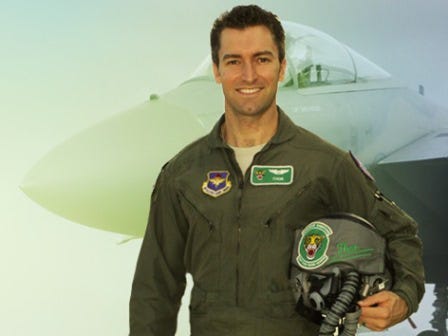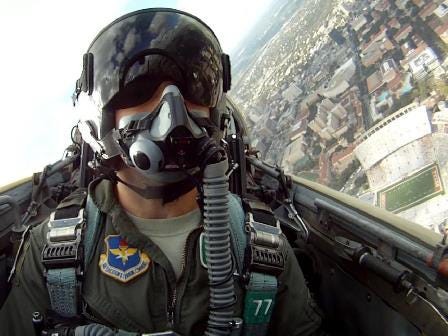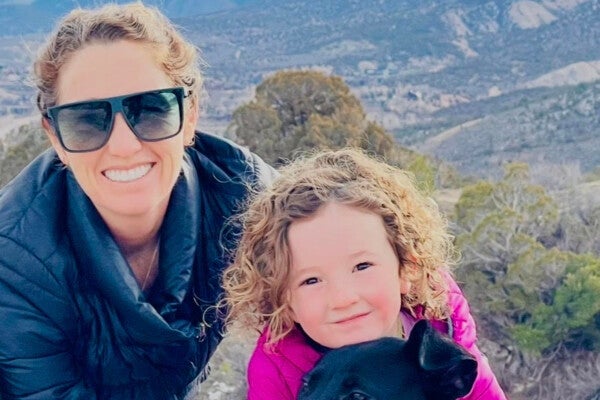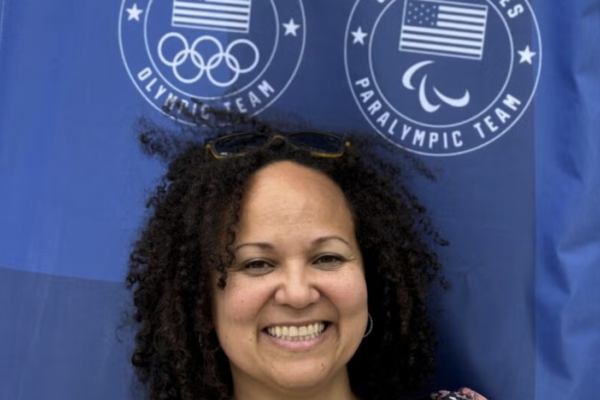Former Air Force Pilot Gains Wisdom in Ultimate Battle Against Cancer
Joel Neeb teaches executive leadership lessons learned in the military and on the death bed
By Madison Hamilton

Joel “Thor” Neeb, MBA ’14, never dreamed of being in the military. He thought he would become a doctor or lawyer instead. But after a mentor introduced him to opportunities in the Air Force, he soon became one of the top fighter pilots. From escorting the president to performing flybys during football games at The University of Texas at Austin, Major Neeb has done it all.
Then in 2010 he was diagnosed with cancer and given only a small chance to live. During treatment, Neeb helped create CureCare, a community outreach program for at-risk students in San Antonio. Today, Neeb is a stage three cancer survivor, and he’s helped more than 15,000 students.
Since 2015, Neeb has been president of Afterburner, an executive consultant firm comprised of more than 70 former fighter pilots, Navy SEALs, and other Special Forces members.


What inspired the transition from the military to business school?
I wanted to shore up the gaps between my military experience and the corporate one. I had spent many years becoming skilled in leading team execution for the military, and I wanted to learn how to best transfer those competencies into the business world.
What are the differences between military leadership and corporate leadership?
The military structure is, by its nature, hierarchical. We have a chain of command, and we observe the authority of the leadership placed over us. This organizational structure is very effective in an environment where decisions need to be made quickly and when execution needs to be coordinated with many moving parts. However, it is not meant to yield creative insights along the way — it’s meant to centralize control while decentralizing execution.
One of the greatest opportunities I had in the MBA program is to learn how less hierarchical organizational structures operate. In many successful corporate environments these days, decision-making is a collaborative process that maximizes the group’s ability to creatively approach challenges.
I think that the most effective leaders are those that can adapt their styles to both of these models — collectively arriving at decisions for their organizations in an open forum, and then executing those decisions in a structured, efficient manner.
What drew you to The University of Texas at Austin?
I applied to, and was accepted at, several other big-name schools across the country. In the end, it was the Texas brand, access to their network of elite professionals, and the reputation for incredible professors that sealed my decision to attend school at UT. The Texas Executive MBA program blew away my expectations.
Tell me about your youth outreach program. What inspired that?
I am a stage three cancer survivor. When I first got my diagnosis in 2010, my doctors thought that there was very little chance that I would survive my battle. I was feeling defeated and pretty sorry for myself. I had two young sons who would probably not remember me after I was gone. I had taken great care of myself physically for years, and it just didn’t seem fair that I was facing this horrible fight. Then I experienced something that changed me forever. I was walking into the cancer hospital for the first time, feeling angry and bitter at my predicament. “Why me?” I thought.
Just then I saw a girl, probably about 10 years old, being pushed into the hospital in a wheelchair. She wore a hospital mask and was pale and thin with very little hair, but I remember she had piercing blue, beautiful eyes. Our eyes met for a moment as we entered the hospital, and in her expression I could tell that she was very afraid. In an instant, any sense of self-pity I had was gone, replaced by shame that I had ever felt sorry for myself after the 33 wonderful years I had already been given. I was consumed by a desire to help that little girl who was facing down her own cancer nightmare.
Unfortunately, the girl disappeared down a hospital hallway and I never saw her again. However, I made a decision that day.
Regardless of the outcome of my cancer battle, I was not going to be a victim. I would help out other people with whatever time I had left.
One of the biggest challenges in the San Antonio area is the graduation rate of our young people from high school. Throughout six months of chemotherapy, I led a team of military members that mentored at-risk students in the San Antonio area. School absentee rates have been cut in half, teachers report major behavioral improvements, and students are not only graduating, they are applying to colleges in record numbers.
I learned a very valuable lesson from seeing that little girl in the cancer hospital. We all have our battles to wage. By focusing my efforts on helping others fight theirs, I was able to put my own situation into perspective.
It’s pretty hard to feel sorry for yourself when you are reaching out to help someone else.
By helping others, I gained strength for my own battle.
You’ve accomplished so much. What are you most proud of in your career (or life) so far?
During my cancer battle, there was a time when, for all practical purposes, I was on my deathbed. Like many people do when faced with the prospect of the end of their life, I reflected back on the years I had been given.
As I reminisced, one theme in my memories gave me the most joy: the incredible teams that I had been fortunate enough to be a part of over the years. Sure, I had individual accomplishments that I was proud of, like throwing my hat in the air at the Air Force Academy graduation, flying an F-15 faster than the speed of sound upside down through the snowy canyons of Alaska, and seeing my children grow and learn. But I was most proud of the larger journeys I had taken with my brothers and sisters at the Air Force Academy, the fighter pilots that I flew with, and especially my incredible family.
At a UT Leadership Symposium I attended years ago, Graham Weston, former Chairman of Rackspace, said that, “All people really want is to be valued members of a winning team on an inspiring mission.” I learned that same lesson from my hospital bed in 2010. I recovered from my cancer battle, but I will never forget what mattered to me when I thought it was the end of my life.
It is the teams — not the accolades — that you will remember the most.
Originally published at www.today.mccombs.utexas.edu.
About this Post
Share:


